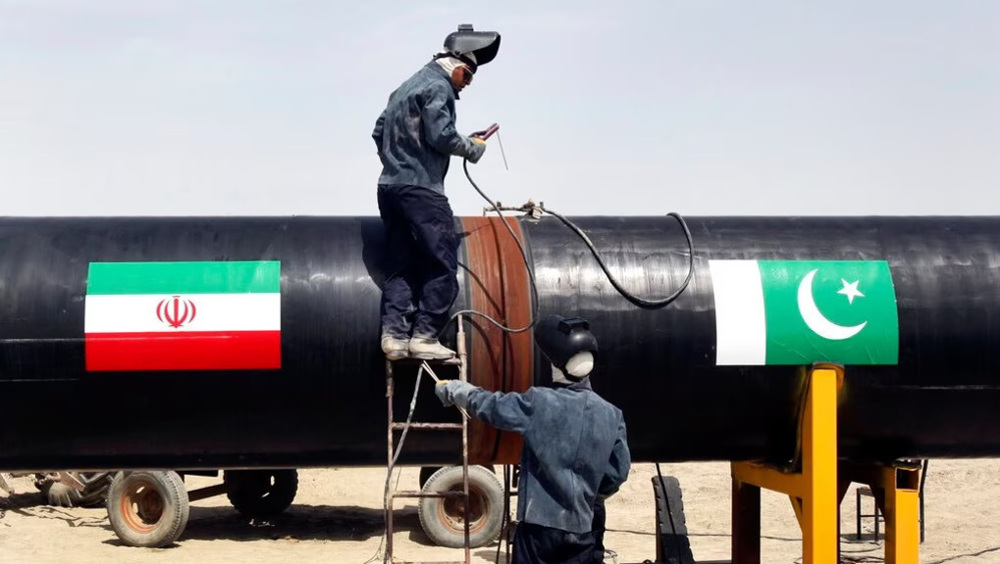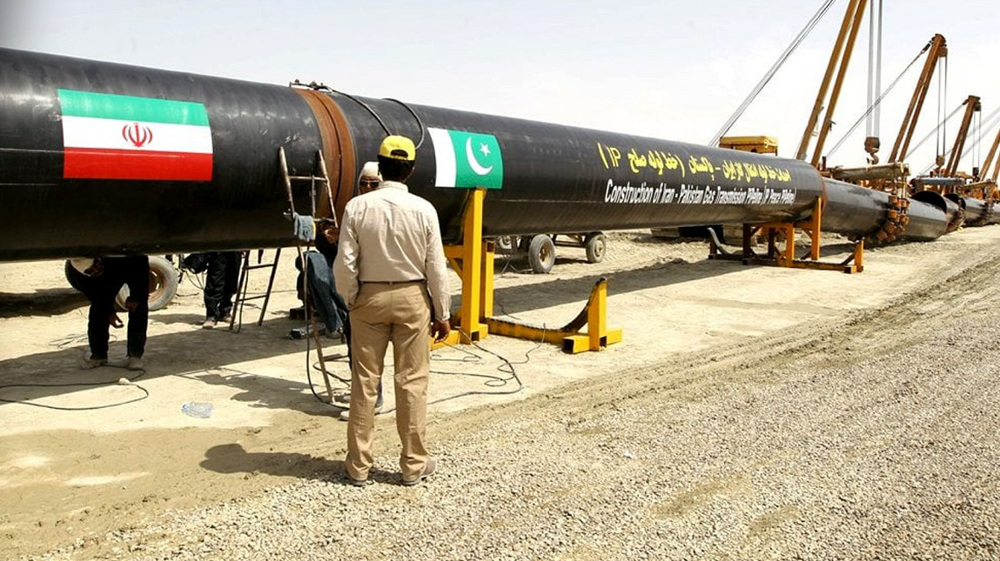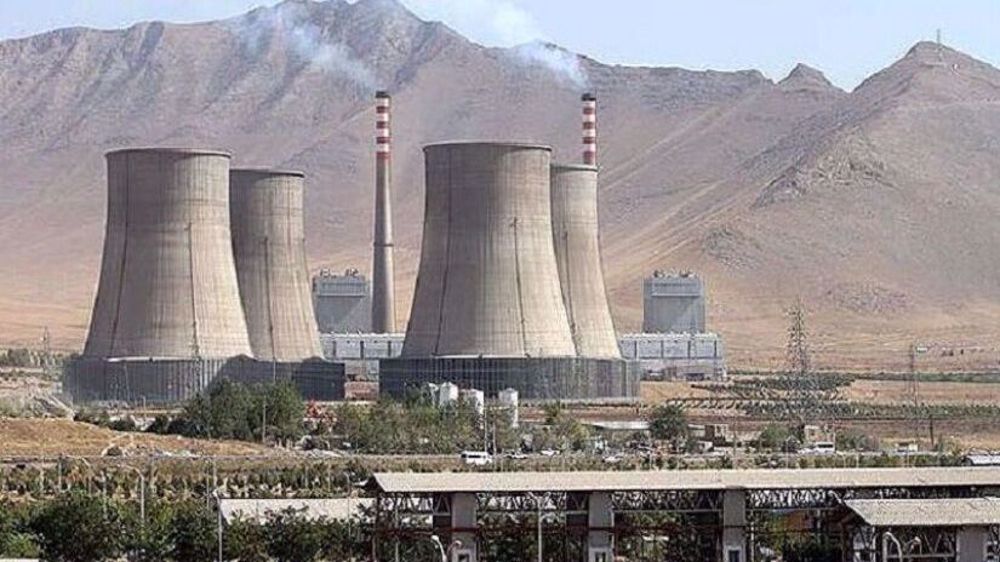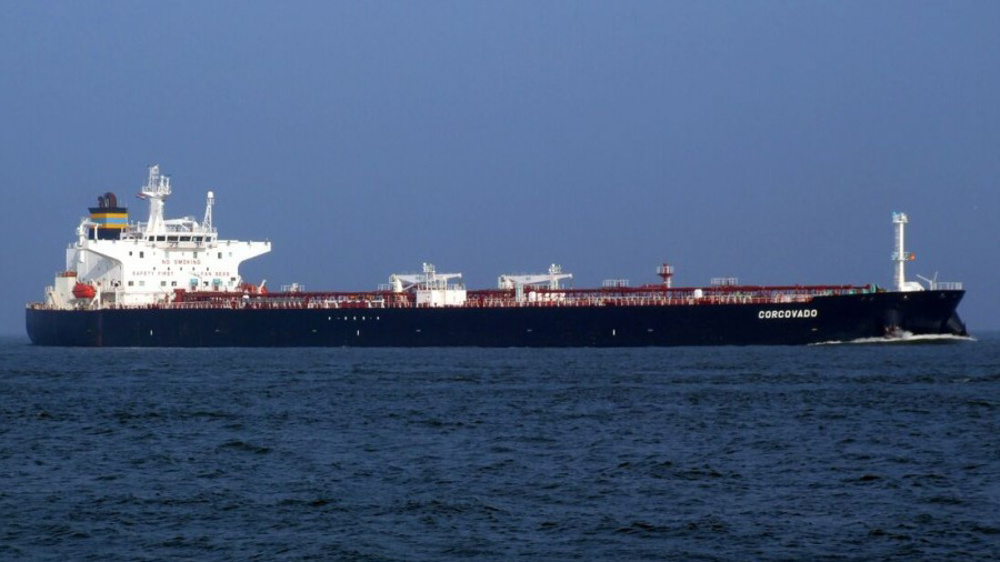US sanctions ‘may not apply’ to gas pipeline project with Iran: Pakistan energy minister
Pakistan’s caretaker energy minister says the sanctions the United States has imposed on Iran over its civilian nuclear program may not apply to the gas pipeline as Islamabad was going to start work on the project within its territory and connect to neighboring Iran.
“I don’t think that the US sanctions can apply to the IP project at this stage,” Muhammad Ali responded to a question during a news conference in the Pakistani capital on Tuesday.
When asked about US’s anti-Iran sanctions, the interim minister replied that he was unaware of what the Americans wanted in connection with the IP gas pipeline project.
Meanwhile, he said work on 80 kilometers of the pipeline in the Pakistani territory would be carried out, adding that it would take around 1.5 years to complete the pipeline project in the Pakistani territory.
“It will take time to connect it with the Iranian side for the supply of gas,” he noted.
Pakistan advances work on gas pipeline project with Iran to avoid fine@mrshah79 reports from Islamabad.
— Press TV 🔻 (@PressTV) February 25, 2024
Part 1 pic.twitter.com/lCI0tvzuSM
The remarks come as Islamabad has given the green light for advancing much-delayed work on gas pipelines within its territory.
Analysts say the project will improve Pakistan's energy security and support regional industries by providing stable and enhanced gas supplies.
“We should make it a trade border, not an international border, and Pakistan and Iran should actually enhance their trade. And there is so much of informal trade which is going on between both countries.
“It has to be formalized and increased and to truly go in the national interest and benefit of both nations,” said Reza Muhammad, president of Islamabad Policy Research Institute.
Iran has extended the project deadline by 180 days until September 2024 so as to avoid a legal dispute with Pakistan at international tribunals.
The project, launched in 2013, required Pakistan to finish the construction of the pipeline on its territory by the end of 2014.
But the work stalled, upsetting Tehran, which has said it already invested $2 billion in the pipeline on its side of the border.
Washington has opposed the pipeline, saying it could violate the illegal sanctions imposed on Tehran.
Pakistan will likely face an 18-billion-dollar fine if it terminates the gas pipeline agreement.
Experts say that Pakistan’s decision to kick off work on the gas pipeline project in its territory comes due to fear of a potential penalty for failing to complete the project.
At least 19 Gazans killed by Israeli airstrikes since dawn: Medics
Leader: Iran has no proxy forces in West Asia
US fighter aircraft shot down ‘in friendly fire’ amid aggression on Yemen
Yemeni FM: Israel’s sponsors accountable for ongoing aggression on Sana’a
Eight Palestinians killed as Israel attacks Gaza school, hospitals
VIDEO | Rome, Milan host new protests in solidarity with Palestinians
Dec. 21: ‘Axis of Resistance’ operations against Israeli occupation
Spain jurists demand ties with Israel ties be cut











 This makes it easy to access the Press TV website
This makes it easy to access the Press TV website